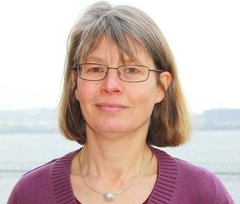
Abstract:
Global biogeochemical ocean models contain various different biogeochemical components and representations of complex dynamical interactions. These are described by many parameters, which are often difficult to constrain empirically, particularly before the background of scarce biogeochemical data. The resulting parametric uncertainty may be of consequence for the models' skill with respect to accurately describing the relevant features of the present ocean, as well as their sensitivity to possible environmental changes.
Global model optimization against available, quasi-synoptic biogeochemical data of the present ocean, together with a posteriori analysis of parameter values can help to get an idea about the consequences of parameter uncertainty. Evaluation of model fit to independent data can help to assess the model's capability to represent biogeochemical dynamics.
I here present some results from a framework for optimization of global biogeochemical ocean models in steady state. The framework combines an offline approach for transport of marine biogeochemical tracers with an Estimation of Distribution Algorithm, a type of evolutionary algorithm in which the probability distribution is parameterized. The optimizations are carried out with different types of global biogeochemical models against data sets of nutrients and oxygen. Possible consequences for model skill with respect to societal relevant questions - such as the extent of oxygen minimum zones - are discussed.
Arranged date for the seminar talk: May 10, 2017 at 14:00 in the GFI East wing auditorium.
